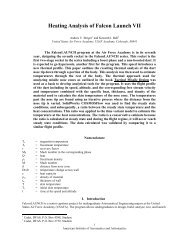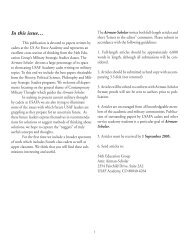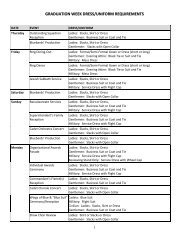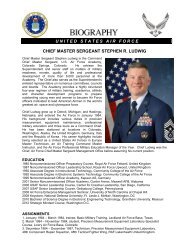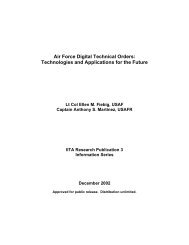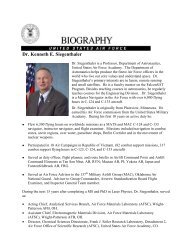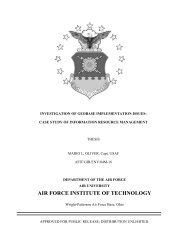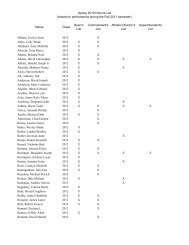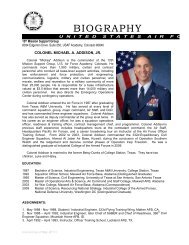the rollback of south africa's biological warfare program
the rollback of south africa's biological warfare program
the rollback of south africa's biological warfare program
Create successful ePaper yourself
Turn your PDF publications into a flip-book with our unique Google optimized e-Paper software.
1990. The 1976 uprisings led <strong>the</strong> apar<strong>the</strong>id regime to search for ways,<br />
including <strong>the</strong> use <strong>of</strong> chemical agents, to control or incapacitate large groups <strong>of</strong><br />
people.<br />
At <strong>the</strong> same time as <strong>the</strong> Soweto uprisings, <strong>the</strong> “Muldergate” scandal<br />
erupted. The scandal demonstrated that corruption was eating away at <strong>the</strong><br />
formerly unquestioned strength <strong>of</strong> <strong>the</strong> apar<strong>the</strong>id regime. Informal norms had<br />
become entrenched by <strong>the</strong> mid-1970s that permitted an extensive level <strong>of</strong><br />
corruption within <strong>the</strong> Afrikaner-dominated bureaucracies. The corruption was<br />
an important pre-condition that allowed Wouter Basson and o<strong>the</strong>r top <strong>of</strong>ficials<br />
to use <strong>the</strong> CBW <strong>program</strong> in <strong>the</strong> late 1980s and early 1990s as a cover for <strong>the</strong>ir<br />
personal gain.<br />
In <strong>the</strong> wake <strong>of</strong> <strong>the</strong>se regime-shaking events, <strong>the</strong> Defense Minister, P.W.<br />
Botha, replaced B.J. Vorster as President in 1978 and initiated his vision <strong>of</strong> <strong>the</strong><br />
“total strategy.” Botha differed from his predecessor in <strong>the</strong> degree that he was<br />
oriented towards <strong>the</strong> military (and special forces), especially because <strong>of</strong> his<br />
years <strong>of</strong> service as defense minister. He initiated a range <strong>of</strong> reforms, combined<br />
with <strong>the</strong> widespread use <strong>of</strong> coercive power, to ensure <strong>the</strong> survival <strong>of</strong> <strong>the</strong><br />
regime. Power was increasingly consolidated in <strong>the</strong> hands <strong>of</strong> <strong>the</strong> military and<br />
taken away from civilians. In particular, Botha favored <strong>the</strong> development <strong>of</strong><br />
advanced weapons projects and covert operations that would give South Africa<br />
additional advantages against its adversaries. South Africa initiated a series <strong>of</strong><br />
internal and external military and paramilitary operations. These included<br />
assassinations, torture, and smuggling, as well as forgery, propaganda, and<br />
subversion. All were defined as “legitimate” weapons against <strong>the</strong> “total<br />
onslaught” <strong>of</strong> “red” and “black” forces. These practices were established at <strong>the</strong><br />
top and legitimized deviant behavior throughout <strong>the</strong> military, police and<br />
intelligence services. 37<br />
Within <strong>the</strong> “any means necessary to survive” framework, preparations<br />
began to develop a chemical and <strong>biological</strong> <strong>warfare</strong> (CBW) <strong>program</strong>, called<br />
14




